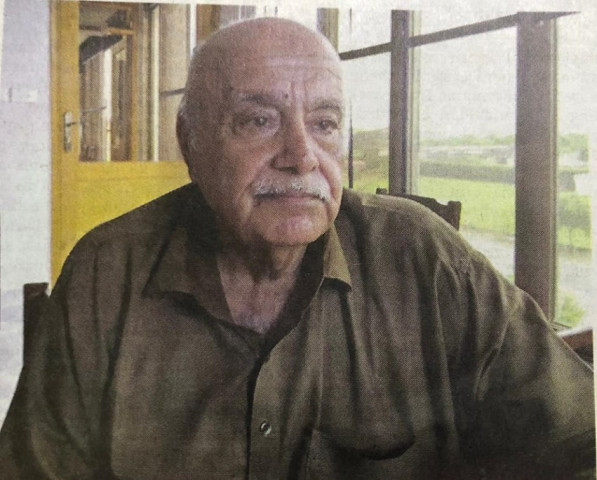Meet the man who has educated thousands of girls in Karachi's outskirts
There was not a single school for girls when Wadehlo launched the initiative in the 70s

PHOTO: EXPRESS.
During his formative years, one of the things that struck Wadehlo most was the low female literacy rate in Karachi's suburbs. Determined to be the change agent, Wadehlo, along with some like-minded friends, established a non-governmental organisation, 'Wadehla Baloch Samaji Tanzeem (WBST)' in 1973. The NGO's activities especially focused on girls' education.
Faisalabad’s education ranking falls drastically
As a child, Wadehlo himself travelled eight kilometres daily from village Dur Mohammad located on the link road between the National Highway and Super Highway to complete his matriculation. Inspired by the education system at the Jamia Milia College in 1973 and later at the Karachi University (KU) where he graduated with a Masters of Arts in Economics degree in 1975, Wadehlo resolved to educate the women of his area.
The KU's education system, he says, is what inspired him most. Wadehlo proudly counts the current Prime Minister's Adviser on Finance Abdul Hafeez Shaikh, economist Qaiser Bengali and journalist Shafi Naqi Jami as his peers at the KU.
Humble beginnings
In 1973, he laid the foundation stone for the first girls' school in Dur Mohammad village under a Neem tree. "It was hard to convince people to send their daughters to the newly-established school," said Wadehlo, reminiscing the early days with a smile. "I first sent the girls from my family to the school, which encouraged others," he explained.
"I remember there was only one girl in Malir and Gadap in the early 1970s, who had completed her matriculation and she was from the Khoja community," he recalled.
Initially, his team of volunteers visited several villages to convince the people to send their girls to school that had set up under a tree. At the time, they had a few male teachers, conducting classes on a voluntary basis. "We then managed to convince a few female teachers from urban localities to teach our girls," he added.
In the early 1990s, he convinced the provincial government to approve the construction of 44 girls' schools in Karachi's suburbs. Not only this, the government also agreed to provide the students and teachers with transport facilities so they could reach the schools easily.
"Today, over 90 per cent of our girls [in Karachi's outskirts] are educated," Wadehlo smiled. In contrast, he said, the literacy rate among boys is less than 70%. "The education city has been established around my village," he said, adding that the campuses of various prominent universities, including Sindh Madresstual Islam, Ziauddin University, Sir Syed University and others are being constructed here," he said. "I had never even dreamed that girls and boys from across Pakistan would come to my area for quality education."
According to Wadehlo, 40 years ago Karachi's rural areas hardly had a female teacher but today, there are a number of female doctors, engineers and top officials belonging to these areas.
Health
Wadehlo, a social and political activist, has also strived to improve the health conditions of mother and child. Through his efforts, child specialist Dr Abdul Ghafar Billo used to visit villages in rural Karachi. Many doctors from Karachi's hospitals also started setting up weekly camps.
"The focus was on the mothers' and children's health," Wadehlo said. "Without healthy mothers and children, we cannot progress in the right direction," he explained.
30 Pakistani students awarded Japan’s Mext Research Scholarships
In 1993, Dr Billo and his team, aided by Wadehlo, established the Health and Nutrition Development Society which currently works across Pakistan. "We established a mini Aga Khan Hospital in Jam Kunda, Malir," he laughed.
With so many achievements under his belt, you would imagine Wadehlo satisfied with what he has achieved so far. "I don't think I have completed my mission," he said. "It's a long way to go," he continued, adding that the struggle would continue till his last breath.


















COMMENTS
Comments are moderated and generally will be posted if they are on-topic and not abusive.
For more information, please see our Comments FAQ